
Politics
22:56, 26-Nov-2017
Zimbabwe’s new president faces challenges
By Farai Mwakutuya
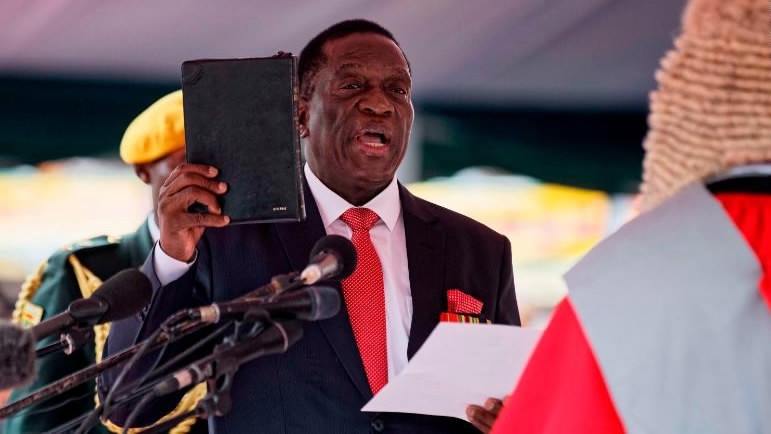
Emmerson Dambudzo Mnangagwa has been an ever present figure in Zimbabwean politics. A long time government minister, Mnangagwa has served in state security, defense, justice, finance, rural housing and most recently as vice president. He has been the Speaker of Parliament and was most recently the leader of government in the house of assembly.
That diverse experience means he is probably the most qualified and prepared to lead Zimbabwe during this crucial stage of transition from the Robert Mugabe regime, characterized by declining economic fortunes, into the “new era” that Mnangagwa has promised his fellow countrymen.
His comments in the inauguration speech were telling – He acknowledged the massive task at hand to rebuild the country – economically, politically and socially.
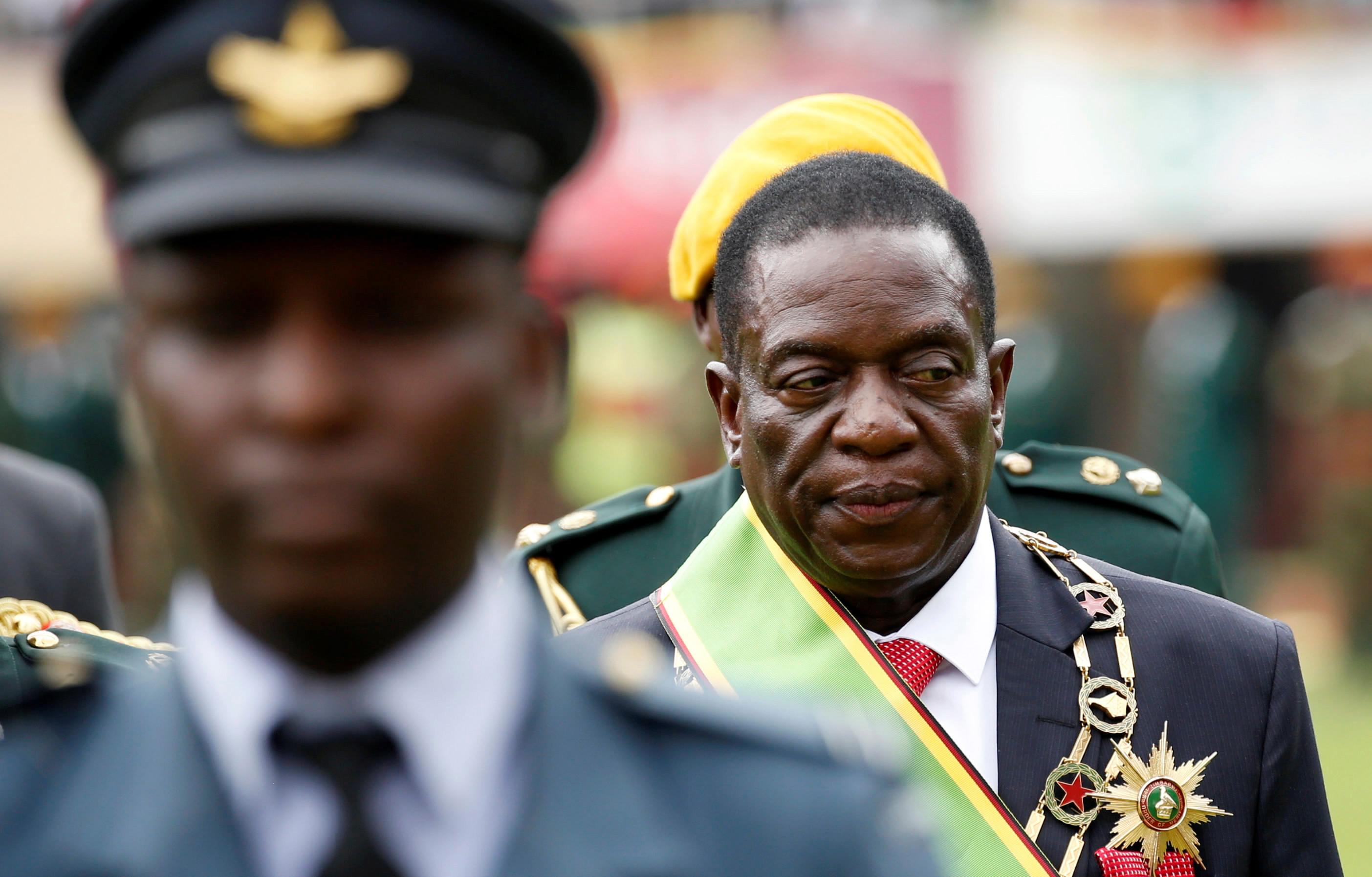
Emmerson Mnangagwa walks after he was sworn in as Zimbabwe's president in
Harare, Zimbabwe, November 24, 2017. /Reuters Photo
Emmerson Mnangagwa walks after he was sworn in as Zimbabwe's president in Harare, Zimbabwe, November 24, 2017. /Reuters Photo
He faces a number of challenges on all three fronts and as he also mentioned in the speech he must “hit the ground running,” because time is not on his side.
Economic challenges
Perhaps the single biggest thing which precipitated the military action that led to Mugabe stepping down, was the economic collapse that has pushed millions of Zimbabweans to the brink of poverty. Jobs are scarce as unemployment hovers above 90 percent. Company closures have accelerated; prices of basic goods continue to rise rapidly; cash has ran out from banks; corruption has become endemic; all this while the government, meant to be looking out for the people, did nothing.
Zimbabweans believe that their new leader will abandon the laissez faire approach of his predecessor. Mnangagwa has already said as much, but now needs to get the rest of the economic agents – government, private sector and labor – to work with him to set in motion the paradigm shift that’s needed to change things.
A huge government debt, depressed investor confidence, low productivity and crumbling infrastructure are among the major hurdles that need to be cleared if Zimbabwe is to achieve meaningful recovery.
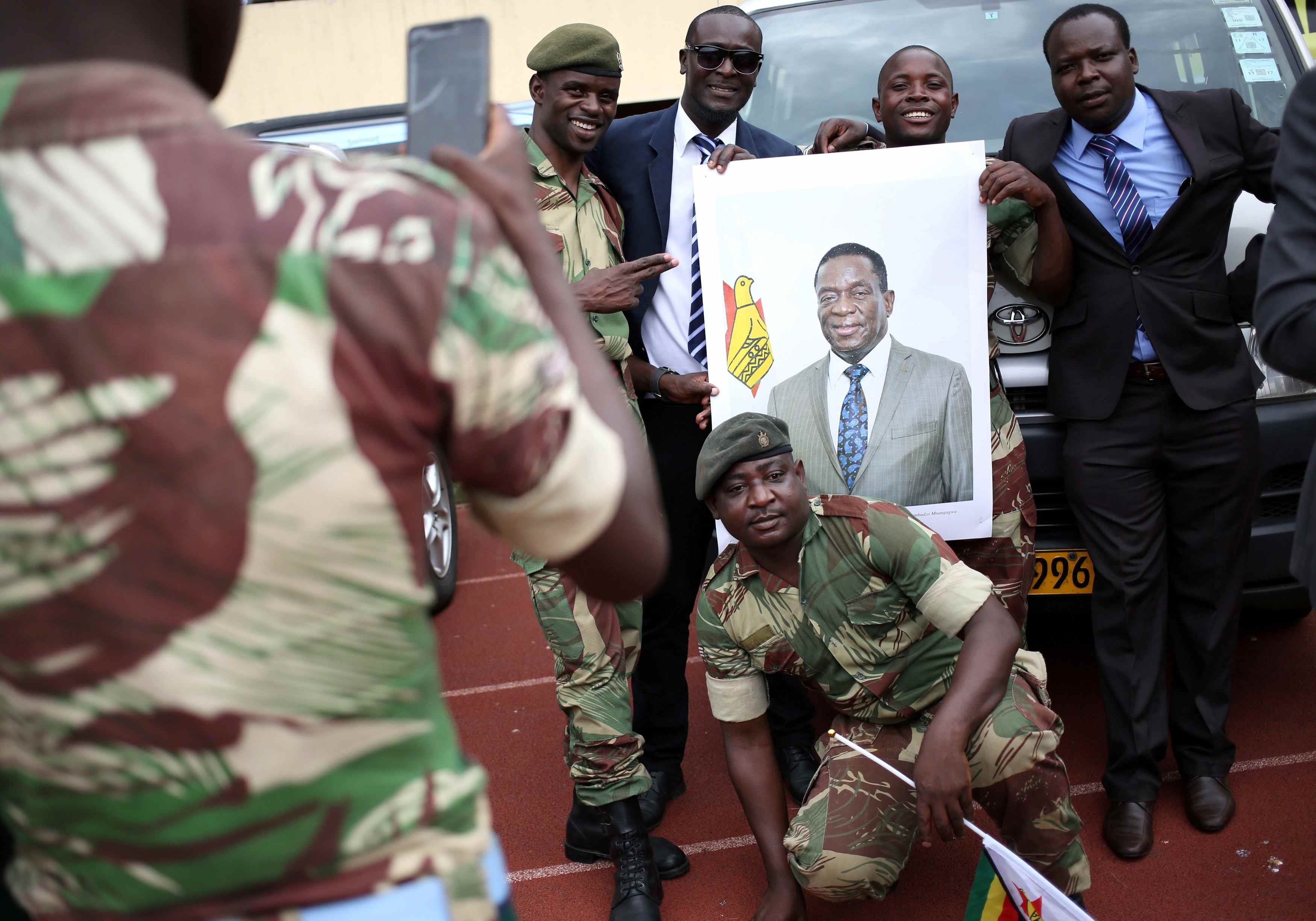
Members of the military pose with a portrait of Zimbabwe's new president, Emmerson Mnangagwa, in Harare, Zimbabwe, November 24, 2017. /Reuters photo
Members of the military pose with a portrait of Zimbabwe's new president, Emmerson Mnangagwa, in Harare, Zimbabwe, November 24, 2017. /Reuters photo
As vice president, Mnangagwa championed a state sponsored command farming program that saw Zimbabwe bounce back from hunger to self sustenance. He’s also been leading efforts to reengage with the international community and win back investors.
Political challenges
For more than a decade and half, Zimbabwe’s political landscape has been characterized by inter party violence and polarization. There was a brief hiatus during the government of National Unity (2009 -2013), but it was soon replaced by a return to instability.
Zimbabwe needs to restore democratic principles, level the political playing field, eliminate political violence and intimidation and implement a number of outstanding electoral reforms that will lead to a credible, free and fair election in 2018.
Before that though he faces a political challenge within his own party. Since 2013, the ruling ZANU-PF has been consumed by factional infighting. It has led to the expulsions of dozens of senior officials, dividing loyalties in the process.
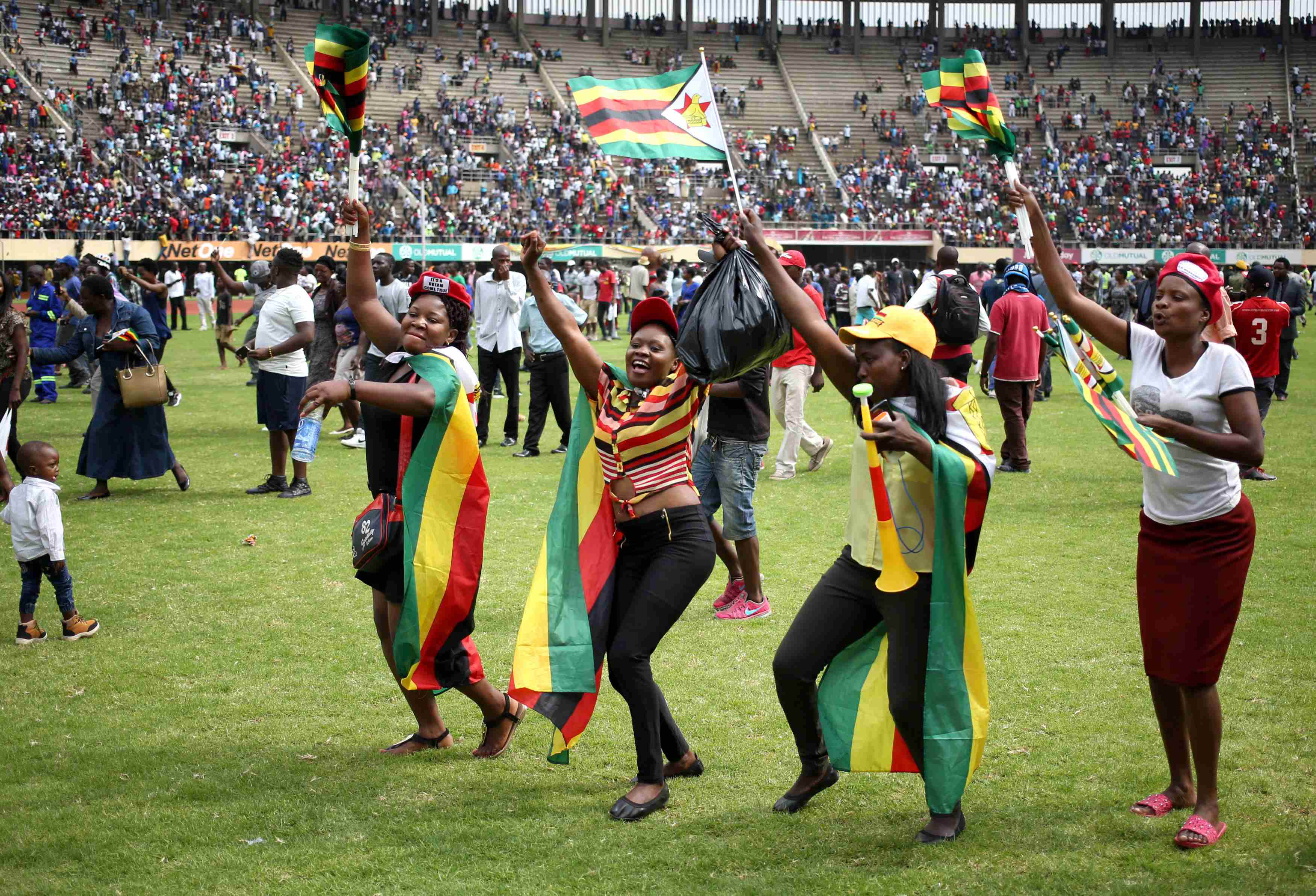
Locals celebrate after the swearing in of Zimbabwe's new president Emmerson Mnangagwa in Harare, Zimbabwe, November 24, 2017. /Reuters Photo
Locals celebrate after the swearing in of Zimbabwe's new president Emmerson Mnangagwa in Harare, Zimbabwe, November 24, 2017. /Reuters Photo
Mugabe tried unsuccessfully to put an end to the bitter turf wars. Many argue that it was because he had a vested interest in who should replace him.
Now that the lingering question in Zimbabweans' politics of who will succeed Mugabe has finally been answered, Mnangagwa has the delicate and complex job of uniting the party again, galvanizing supporters who may all not have backed him as their preferred candidate and to campaign vigorously to deliver a victory in the upcoming elections. All this while under the scrutiny of a judgmental international community that will be watching closely how Zimbabwe conducts the first election where Robert Mugabe will not be on the ballot paper.
Social challenges
While the economy crumbled and the political adversaries battled it out, Zimbabwe’s moral and social fabric was being stretched. The hardships have driven impoverished girls into early marriages or prostitution; young boys into crime and substance abuse. Families have been broken and moral decadence has become pervasive.
Mnangagwa faces the task of healing the people scared by years of hardships, rebuilding the moral and social fabric and uniting a country split apart by racial, tribal and class divisions.
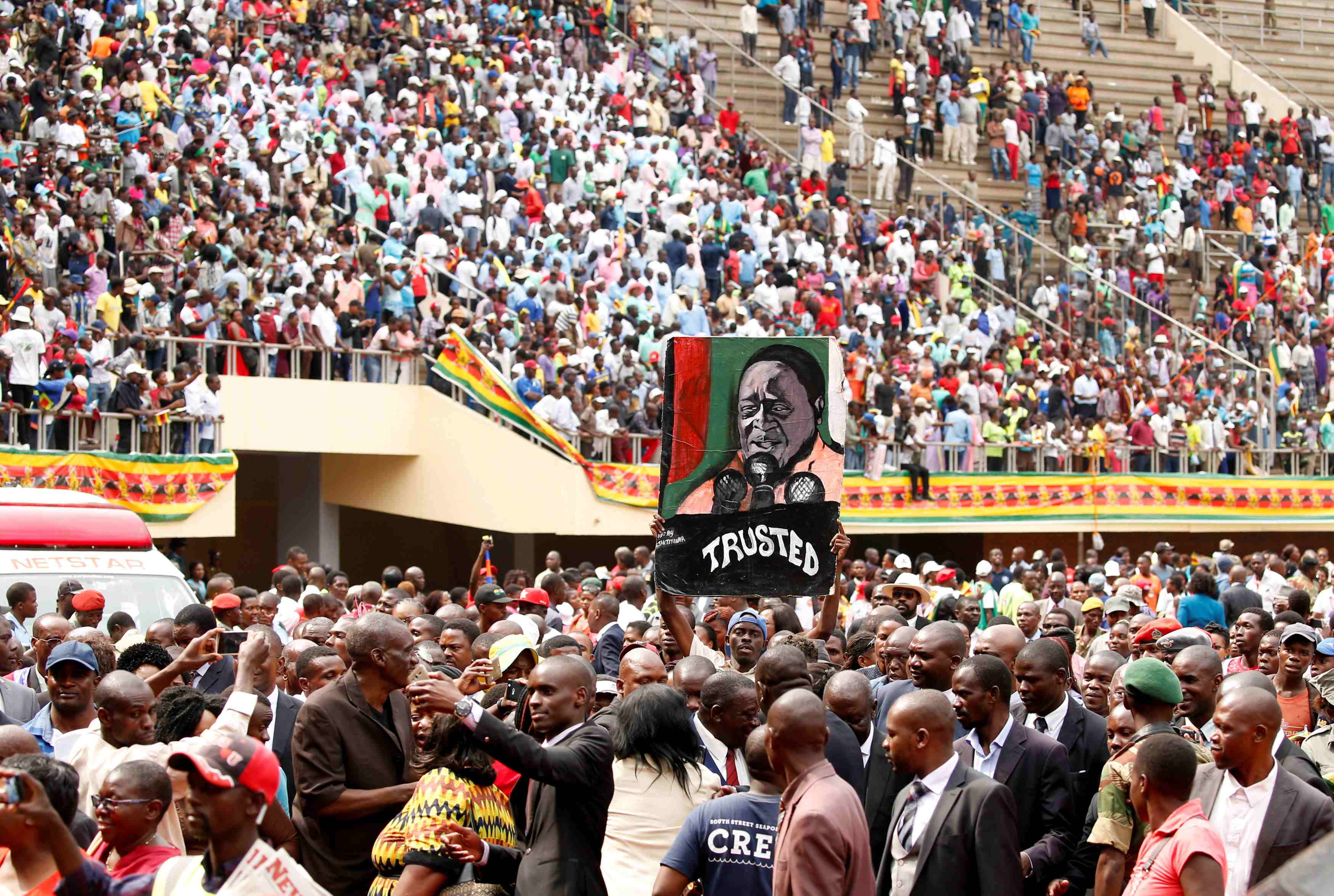
Locals celebrate after the swearing in of Zimbabwe's new president Emmerson Mnangagwa in Harare, Zimbabwe, November 24, 2017. /Reuters Photo
Locals celebrate after the swearing in of Zimbabwe's new president Emmerson Mnangagwa in Harare, Zimbabwe, November 24, 2017. /Reuters Photo
He will also need to prop up the over stretched health delivery system, ensuring medicines and qualified health professionals are available when they are needed, particularly in the rural facilities.
There is also the challenge of delivering a reasonable pension and ensuring an adequate social security safety net for the aged and vulnerable communities including child headed households.
Mnangagwa has inherited a nation that is at its low point, but which has immense potential to bounce back and start to rise again. It will be a mammoth task to achieve. All eyes are on Zimbabwe’s new leader to see how and when he will turn things around. Many here have pinned all their hopes on him and are desperately wishing the faith they have placed in him gets repaid.

SITEMAP
Copyright © 2018 CGTN. Beijing ICP prepared NO.16065310-3
Copyright © 2018 CGTN. Beijing ICP prepared NO.16065310-3